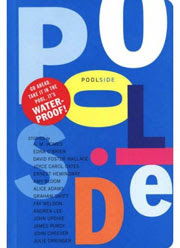Why Trade Shows Are Important
This week the largest book trade show in the United States will take place in New York City called Book Expo America. I'm looking forward to attending this event. While I've been going to trade shows for many years, I know many writers have never been to one nor understand why they are important. In this article I'm going to cover some of these basics.
Almost every field has trade shows which are closed to the public but draw thousands of participants. Librarians, booksellers, retailers, publishers and many others attend these closed events. The first step is to make sure you can get into the event. By closed, I mean it is not open to the public.
Last week one of my Morgan James authors from California, planned to meet at Book Expo, had booked his plane ticket and hotel, then emailed me that he wasn't sure how to get into the event. We worked out the details to get him into the event but you should take care of first things, first. Can you get into the event? Publishers, exhibitors, vendors and media are all ways you can get into the closed event. Often in years past, I've registered as a journalist, writing for a particular publication.
When I arrive at the event, I find the media or press room to get my credentials to get into the show. When I say the event is closed, there is someone standing at every entrance checking badges and credentials. If you don't have the credential, then you can't enter the event. The registration place is different for different categories of participants.
Ok, so you know it is difficult to get into this event but why do you want to get inside this closed trade show?
Book publishers and others related to the publishing industry exhibit their latest products at Book Expo America. There are miles (no exaggeration) of exhibits. The publishers are giving out books which will not release to the public until the fall. Most of these books are marked as “advanced reading copies” and not for sale. It is a way for you to read books before their actual entrance or launch into the marketplace. Publishers give away bags so you can carry these giveaways.
Over the years, I've learned the hard way to execute some common sense with these giveaways. Why? The exhibit hall is a long way from your hotel room. You have to figure out what to do with these bags of free books and whether you want to lug them all over the event with you.
Literary agents and editors are attending Book Expo. I've reached out to a number of people and scheduled meetings during the event. Also from my planning, I have learned about agents who are not attending and I will have to meet with them in another way (phone, email, etc). These face to face meetings can be a productive aspect of attending the trade show.
During the event, I will bring lots of business cards and exchange them freely to form new relationships. Also I've learned to keep my eyes open because you never know who you will see at such an event. I've seen editors and publishers who I've known many years. I've seen celebrities and well-known authors at this event.
Your activities after attending a trade show are also important. I'm talking about the follow-up on ideas and connections and new projects. I've formed many important relationships at trade shows and understand the importance of them for my writing life. There are several keys:
1. Work it out so you can attend — i.e. get inside.
2. Form new relationships and connections
3. Follow-up on the opportunities.
One of the reasons I enjoy Book Expo is the entire trade show is focused on books. For many years I attended the Christian Booksellers Trade Show which was renamed the International Christian Retail Show (ICRS). With the name change, ICRS grew their gift (non-book) aspects until it is almost 50% of the exhibit floor space. ICRS has grown smaller each year and for the last two years been held in Cincinnati, Ohio or a venue which it could not have done years ago. I haven't been to the ICRS event for at least seven years.
Trade shows can be valuable to writers but it takes careful planning and follow-up. Let me know in the comments if you have been to a trade show and what you have gained from it.
Tweetable:
Why should writers go to trade shows? Get the details here. (ClickToTweet)
Labels: Advanced Reading Copies, agents, Book Expo, International Christian Retail Show, publishers, trade shows, writers
































